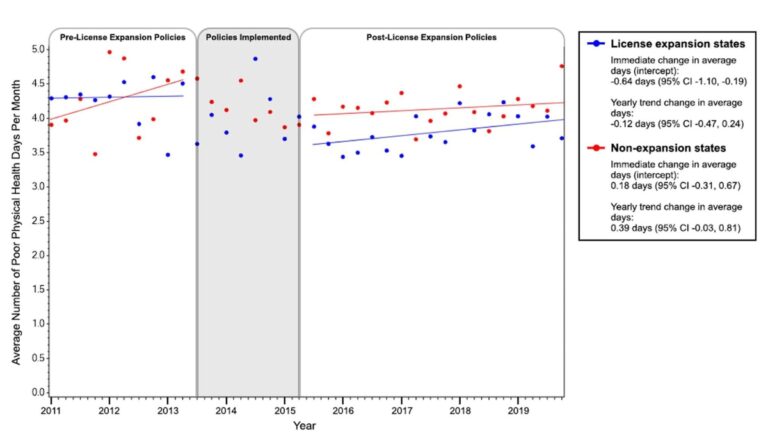Driver’s License as Freedom
Since 2013, a number of states have passed laws that allow licenses to be issued without proof of citizenship or legal residence. These laws have shown to improve perceived health among Latinos, regardless of immigration status.

Read Time: 2 minutes
Published:
How important are driver’s licenses? A 16-year-old might say that licenses are freedom. A 30-year-old commuting during rush hour might say the opposite.
A license means being able to drive. Driving means greater access to resources. Since 2013, almost 20 states, including Massachusetts, passed laws that allow licenses to be issued without proof of citizenship or legal residence. For groups that often commute long distances, immigrant-inclusive license laws widen the ability to get to work, health care, or social services.
Laws requiring proof of legal residence for licenses create institutional barriers that target undocumented immigrants. Because citizenship is not visually discernable, law enforcement may use racial profiling to enforce these laws, singling out Black or Hispanic individuals. Arbitrary road stops produce a relationship between police and entire minority communities filled with distrust, stress, and trauma.
Using data from the Behavioral Risk Factor Surveillance System, Cristian Escalera and colleagues investigated how immigrant-inclusive license laws impacted self-perceived health in Latino populations regardless of their immigration status.
To control for insurance access, only states that expanded Medicaid were included. Then Escalera and colleagues compared states that did (blue) and did not (red) expand license policies around 2015. The graph tracks changes in self-perceived health, represented by days per month that respondents reported poor health.
Latino individuals in license expansion states reported significantly fewer days of poor health following implementation of the policies (4.30 to 3.8). Latino individuals in states that did not expand access reported minimal change in days per month of poor health (4.28 to 4.13) in that comparable period.
Anti-immigrant laws can have spillover effects and discourage non-immigrant individuals from accessing social and healthcare services. Given the association between licenses and minorities’ improved self-perceived health, the authors highlight that immigrant-inclusive license policies facilitate greater mobility and financial stability in a way that allows people to feel healthier.
Databyte via Cristian Escalera, et al. Perceived general, mental, and physical health of Latinos in the United States following adoption of immigrant-inclusive state-level driver’s license policies: a time-series analysis. BMC Public Health, 2022.



